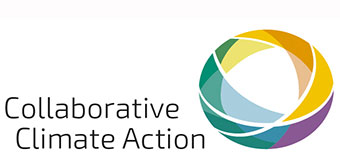Climate Action Summit: New momentum for international climate action
On 23 September, the UN Climate Action Summit initiated by the United Nations Secretary-General António Guterres convened in New York. More than 60 heads of state and government attended and presented their plans for effective climate measures.
The summit focused on preparations for the resubmission of the Nationally Determined Contributions (NDCs) agreed under the Paris Agreement and scheduled for next year. National leaders were called upon to present concrete, realistic plans to bring their NDCs in line with the goals to reduce greenhouse gas emissions by 45 per cent by 2030 and reach net-zero emissions by the middle of the century. Fifty-nine countries announced that they would improve their NDCs in the coming year. In addition, 66 countries, as well as numerous cities, towns and regions, companies and investors, committed themselves to drawing up a long-term strategy to become carbon neutral by 2050.

© GIZ/ Constanze Böning
The summit was grouped into nine thematic tracks. Challenges and opportunities in climate-friendly development in urban areas were addressed in the Infrastructure, Cities and Local Action (ICLA) track and respective sub-tracks on carbon neutrality, decarbonised transport, zero-carbon buildings, climate resilience and decentralised finance. At the opening of the ICLA track, the Mayor of Bonn and ICLEI President, Ashok Sridharan highlighted the importance of collaboration between all levels of government to raise the ambitions of the NDCs: ‘Collaboration has been taken to the next level. Since the first climate summit, cities, regions and nations no longer collaborate randomly, but systematically. This collaboration was not represented in the first NDCs, so there is a need for the next NDCs to be improved and to accommodate multilevel planning and action.’
Numerous initiatives were launched as part of the summit, including the Leadership for Urban Climate Investment (LUCI) initiative developed by the Germany Federal Ministry for the Environment, Conservation and Nuclear Safety, together with a coalition of partners. LUCI consists of four interrelated components. The reformed and strengthened Cities Climate Finance Leadership Alliance (CCFLA) is the world’s leading platform for cooperation, coordination and knowledge management in subnational climate finance. It forms the link between all the LUCI components. The reform and strengthening of the CCFLA was mainly driven by Germany and France. The new secretariat is now headed by the Climate Policy Institute. Further components are the new City Climate Finance Gap Fund (‘Gap Fund’), to create a pipeline of bankable, climate-friendly infrastructure projects in cities, and the ‘FELICITY I’ and ‘FELICITY II’ project preparation facilities supported by BMU.
All initiatives presented at the summit can be found in the UNFCCC initiatives database.
A visible platform for youth representatives was provided at the Youth Summit, convening on 21 September as part of the Climate Action Summit. Young climate activists from more than 100 countries raised concerns and offered their solutions to the climate crisis. This summit, specifically tailored to the integration and empowerment of young people, was the first of its kind organised at the United Nations and was prepared by the ‘Youth and Public Mobilization’ track.
For a comprehensive report on the Climate Action Summit 2019, please click here.

